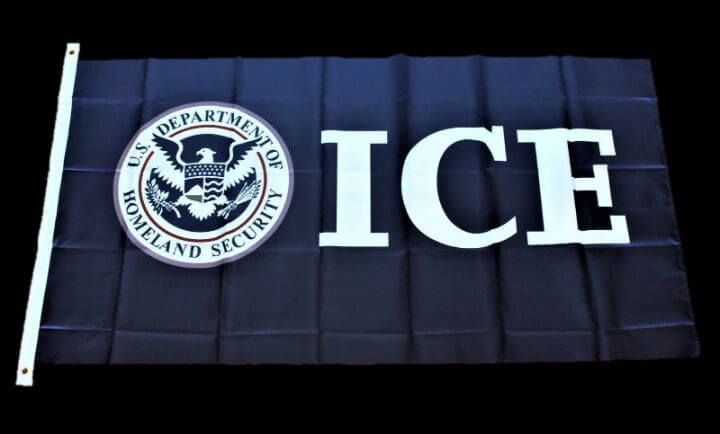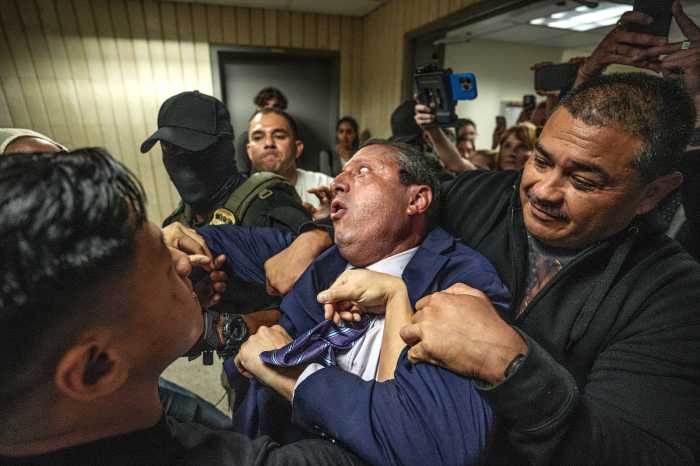Although an alarming amount of immigrants comprise the selfless workforce tirelessly sacrificing to provide essential services to quarantined Americans, Immigration Customs Enforcement aka ICE continues to relentlessly pursue and deport those reputedly unwelcomed in America due to their undocumented status.
Along with significant numbers of deportations slated for enforcement this week, on April 21, 62 Jamaicans are expected to be transported by chartered plane to be sent from the United States.
According to Dr. Horace Chang, Minister of National Security there, measures were effected to facilitate the “safe return and accommodation” of the deportees also known as Involuntary Returned Migrants (IRM).
In light of quarantined conditions on the Caribbean island, Dr. Chang explained the procedure the government will implement to ensure the safety of the population as well as protect the health of the returning nationals.
“Upon arrival, IRMs will be quarantined for two weeks in a secure government facility, where they will be processed by the relevant authorities,” he said.
In a statement he explained that the Ministry of Health and Wellness (MOHW) recently “conducted sensitization sessions with staff at the facility,” there he said they “detailed potential health risks of COVID-19 and how to detect and report signs of the virus.”
The release also stated that while under quarantine, IRMs will be screened twice daily by medical officers assigned by the MOHW.
At the end of the quarantine period, IRMs who are cleared by health officials will be released to family members.
Despite the fact borders remain closed with only limited commercial flights providing trade, and needed supplies, chartered flights are being used to transport individuals forced out by the Department of Homeland Security.
“The arrival of the IRMs is not a novel occurrence. It is one of the monthly returns scheduled to arrive in the country on Mar. 26, 2020. However, the government negotiated a further date to prepare for the IRMs’ arrival under measures imposed to prevent the spread of the COVID19 virus,” the ministry added.
Reportedly, in keeping with the Jamaican Constitution and the Jamaica Nationality Act, Jamaica is duty bound to accept IRMs.
“The Government acknowledges the long-standing arrangement with the United States Department of Homeland Security for the repatriation of Jamaicans who do not have the legal right to remain in the United States,” the ministry said.
“There will be controlled re-entry while observing COVID19 prevention protocols,” Dr. Chang said.
He added that the government is dedicated to the safety of all Jamaicans and continues to make necessary adjustments to recent sanctions under the Disaster Risk Management Act.
Jamaicans concerned with the repatriated Jamaicans during this time of health crises have been assured that the government will “continue to be guided by our health officials and security forces to uphold best practices during the COVID-19 pandemic.”
Reportedly Prime Minister Andrew Holness was pressured by President Donald Trump who allegedly warned of visa sanctions for countries that refused to accept their citizens.
To that end, Opposition parliamentarians urged the leader to lobby for a postponement until after the coronavirus pandemic has subsided.
News reports revealed that 75 per cent of deportees to Guatemala from the US tested positive for COVID-19.
Meanwhile, visiting immigrants are concerned about overstaying their visas. Worried that their visa expiration penalties could bar them from entering the US for the next three years or even forbid them from re-entering the US in the future many are scrambling to prevent post pandemic hindrances.
It should be noted that instead of panicking, immediate steps should be taken to avoid unfortunate situations by making an application to the United States Citizenship and Immigration Services (USCIS) for another visa.
Individuals are advised to make an application for a change of status or (COS) or request to extend the current one by seeking an extension of status (EOS) which can be filed online.
Applicants need to submit “credible evidence” to support the request and explain why it is late. USCIS is still accepting and processing applications and petitions all of which should be filed prior to the expiration date.
A statement from USCIS said “nonimmigrants generally do not accrue “unlawful presence” while their application is processed. The agency also stated that it would consider delays caused by the pandemic “when deciding whether to excuse delays in filing documents based on extraordinary circumstances.”
Catch You On The Inside!


























